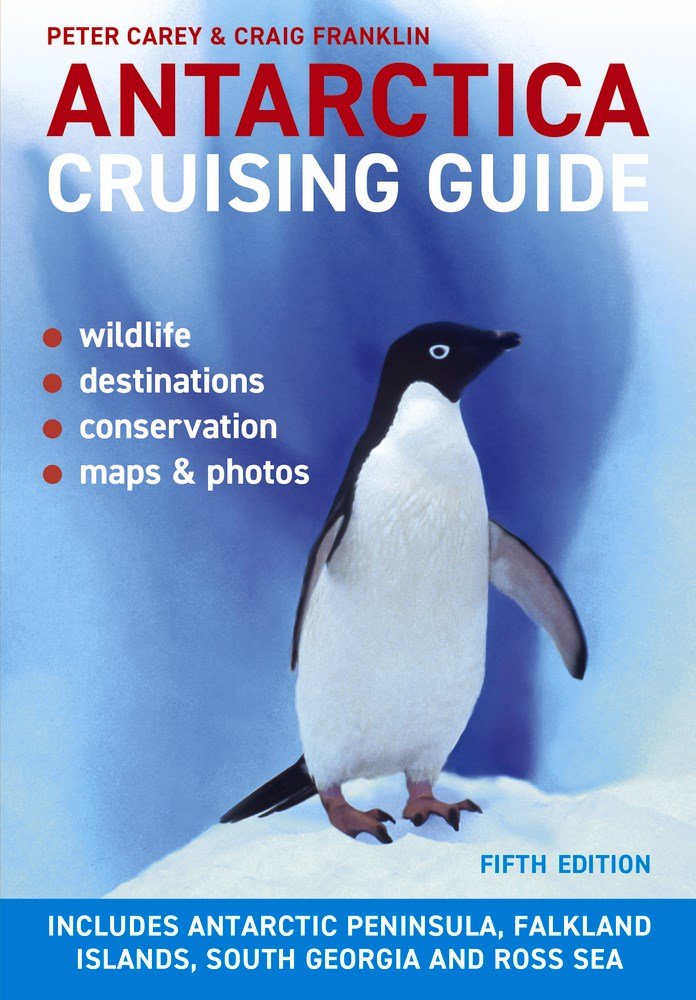Antarctica Cruising Guide
Includes Antarctic Peninsula, Falkland Islands, South Georgia and Ross Sea

Now packed with even more breathtaking colour photographs, wildlife descriptions, and detailed area maps, this updated fifth edition of this bestselling Antarctica travel guide includes fascinating, full accounts of interesting places, spectacular landscapes, and local plants and wildlife-from penguins and other seabirds to whales, seals, and myriad mammals.
A definitive field guide to Antarctica, this book caters to South Pole visitors traveling by luxury liner, adventure cruise, or private boat. Written by experienced Antarctic scientists and travel guides who are recognised experts in the continent's wildlife, conservation, and political history, every page offers gorgeous colour photographs of the great white south.
This new edition pays special attention to explaining the threats to Antarctic conservation, including from climate change, global warming, and plastics pollution, and includes tips on how visitors can minimise their own impact and help preserve this unique continent.

Peter Carey is a zoologist and educational tourism consultant who has worked in Antarctica and the Southern Ocean since 1983. He has conducted research as a scientist with the New Zealand Antarctic Programme and the Australian Antarctic Program, and worked as an expedition leader and lecturer on many Antarctic cruise ships. Peter is the director of the SubAntarctic Foundation for Ecosystems Research (www.subantarctic.com), a non-profit conservation organisation that is improving wildlife habitat in the Falkland Islands, and a Global Fellow of the Polar Institute of the Wilson Center.
Craig Franklin is a professor in zoology in the School of Biological Sciences, The University of Queensland, Australia. He has made more than 30 trips to Antarctica, including ten research expeditions as part of the New Zealand Antarctic Programme. He has published over 260 scientific works, including papers in journals Nature, Science, and Nature Climate Change. His research focuses on how animals such as fish, frogs, and crocodiles can survive and function in extreme and hostile environments. Internationally he is recognised as a leading proponent of the emerging field of conservation physiology, and several of his research projects assess the impact of human-induced environmental change on animals. His Antarctic research has looked at the impact of temperature increases on the physiology and survival of fish. He is a strong advocate of wildlife conservation and spends his annual holidays lecturing on cruise boats about the Antarctic ecosystem and its spectacular wildlife.
